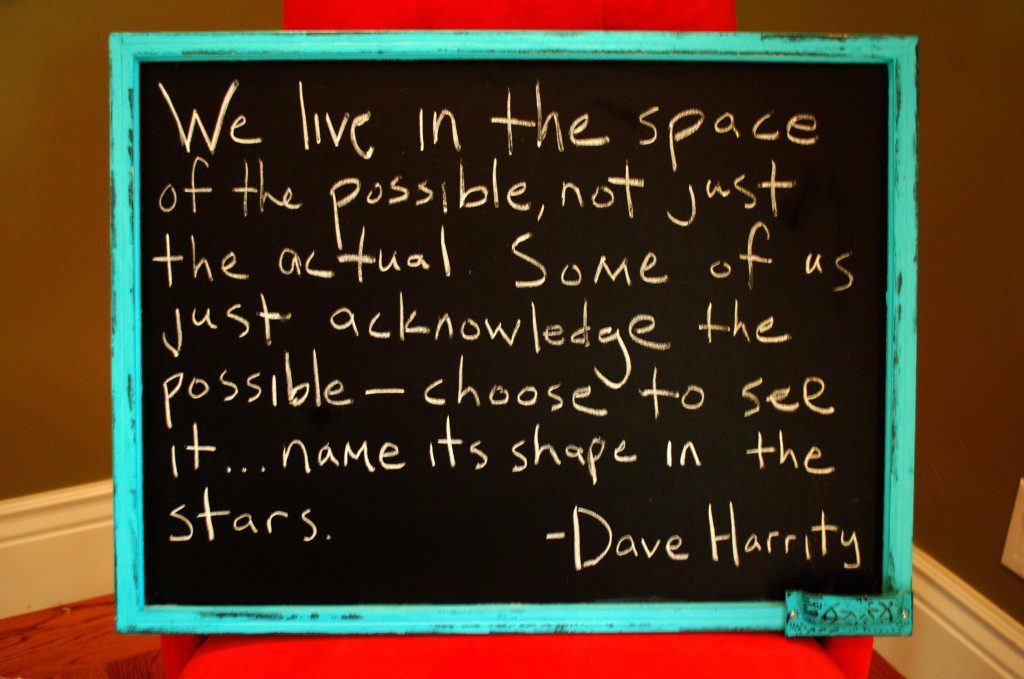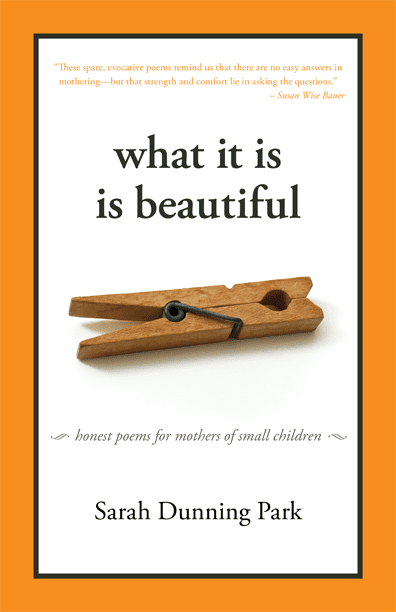A project like A Year of Biblical Womanhood, in which Rachel Held Evans spends a year attempting to follow every specific biblical principle applied to women, could easily have come off as a mockery, one more 300-page joke about how the Bible is backward and legalistic and written by women-hating ancients. Instead Evans invites us into her struggle: her love for scripture and her willingness to work through the parts of the Bible that she isn’t quite sure how to make sense of.
This book, which chronicles her twelve months of researching Levitcal laws, studying Paul’s letters, and applying the most conservative standards to her life as a woman, is what fellow blogger, Amy Lepine Peterson calls a “kind of performance art project,” in which Evans wears skirts and head coverings, camps in a tent during her period, learns how to roast a turkey, and calls her husband “master. ”
As a woman, who, much like me, grew up in a church culture in which fundamentalist overtones defined what it meant to obey scripture, to live up to the ideals of Biblical demands, to love God and be a woman, Evans comes to the Bible in vulnerability. She is playful in her approach to this year of following its commands for women, but she is also seeking some sort of answer.
We’re allowed into that. She shares her fears of motherhood. She shares her struggle with the violence of the patriarchal Old Testament. She reveals her uncertainty in taking on this kind of task. Of course, she has something to prove. She doesn’t hide her opinion of John Piper’s “Council for Biblical Manhood and Biblical Womanhood” in this book (203-204). She clearly wants us to question along with her what it really means to be a “Biblical Woman.” She wants us to grasp that in some way everyone picks and chooses what pieces of scripture we will practice and what pieces we won’t.
But what Evans does best is allow us into her genuine self-discovery, when her experiment leads her toward a new view of scripture that is fuller and richer and more life-giving. The best example (and the most meaningful part of the book for me) was Evans’ rediscovery of Proverbs 31 as a poem of praise for all women of valor, not an impossible task-list.
In her attempt to befriend those who have chosen more conservative readings of scripture, Evans gets to know an Orthodox Jewish woman in Israel who, over email, helps her make sense of the Jewish perspective on several Old Testament texts. When Evans mentions the evangelical tendency to make Proverbs 31 into a step-by-step instruction for how to be an ideal woman of faith, her friend is shocked. She assures Evans that she’s never encountered the passage as a list of instructions but only as a husband’s blessing over his wife.
Evans goes on to research her friend’s suggestion:
“…sure enough, in Jewish culture it is not the women who memorize Proverbs 31, but the men. Husbands commit each line of the poem to memory so they can recite it to their wives at the Sabbath meal, usually in a song … ‘A valorous woman, who can find? Her value is far beyond pearls’… Eshet chayil is at its core a blessing—one that was never meant to be earned, but to be given, unconditionally” (88).
I found such freedom in this idea, that this ideal woman, this Woman of Valor in the proverb, is a not a standard we’ll never live up to, but a blessing to all of us tired wives, tired single women, tired grandmothers and professionals: all of us who are already getting up at the crack of dawn and staying up late, cleaning the house and wiping snotty noses and stinky bottoms, all while trying to pursue our work in some meaningful way. I will never be like my own mother, who whipped up my son’s Halloween costume in three days notice and whose hands are always busy with some kind of project. I will never be a gifted baker. I just don’t have it in me. But that doesn’t mean my hands aren’t busy like the Proverbs 31 woman. My hands are typing words whenever they get a moment. And when they’re not, my brain’s fingers are creating all the same. I’m making something I hope is beautiful.
That’s the thing. We all are. At the end of her year of following the Bible’s overt directions toward women, Evans sits in prayer by a mountain stream, slowly confessing her failures to God, letting pieces of the challah bread she made from scratch fall into the water as her sacrifice. She has discovered something that, hopefully, her readers have discovered as well.
What Rachel Held Evans gives women (and men) like us—those of us who love the Bible and long for it to be used, not as a weapon in combat with other believers, or a list of dos and don’ts by which we measure our worth or judge the worth of others—is the possibility that scripture is a blessing. Just as the Jewish husband sings Proverbs 31 over his wife every Friday at sundown (defining her—not based on her works that week but on her status as his wife—as a Woman of Valor), we are invited to let this collection of words, what we believe to be the very Word of God, bless us, invite us into grace, promise us that what God holds out in scripture is not a list of tasks that must be checked off in order for us to become “Biblical Women,” but an invitation to the life of true Biblical womanhood: the story of our being rescued from our failed attempts at ever living up to any ideal.
That’s the great narrative of Christianity after all, isn’t it? Our utter neediness for grace, our failure to live up to the Law, and God’s tender mercy that comes to our failures and sings over us and these false attempts at true womanhood: “You are a woman of valor!”
Eshet chayil! Not because of what we’ve accomplished, but because of the One to whom we belong.











